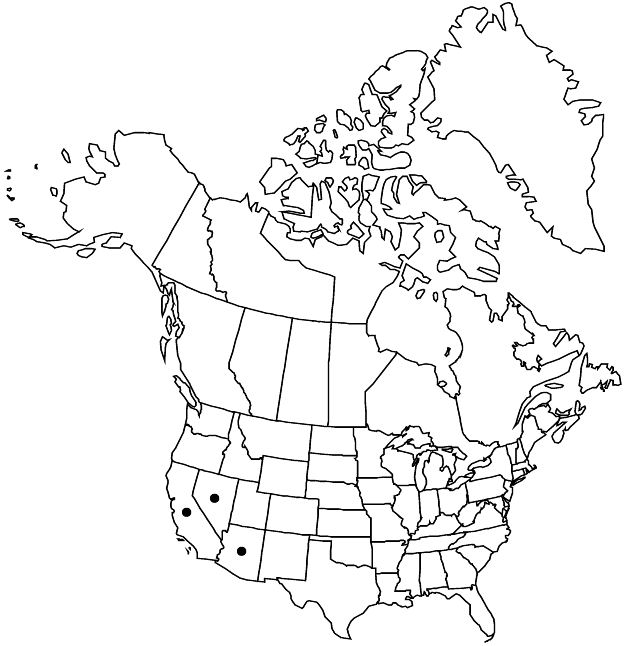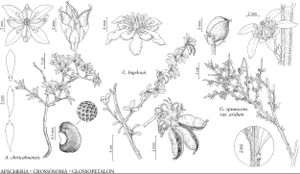Difference between revisions of "Crossosoma bigelovii"
Proc. Amer. Acad. Arts 11: 122. 1876.
FNA>Volume Importer |
imported>Volume Importer |
||
| (One intermediate revision by the same user not shown) | |||
| Line 67: | Line 67: | ||
|publication year=1876 | |publication year=1876 | ||
|special status=Illustrated | |special status=Illustrated | ||
| − | |source xml=https:// | + | |source xml=https://bitbucket.org/aafc-mbb/fna-data-curation/src/2e0870ddd59836b60bcf96646a41e87ea5a5943a/coarse_grained_fna_xml/V9/V9_14.xml |
|genus=Crossosoma | |genus=Crossosoma | ||
|species=Crossosoma bigelovii | |species=Crossosoma bigelovii | ||
Latest revision as of 22:54, 5 November 2020
Shrubs, 0.7–2 m. Leaves mostly fasciculate on short shoots, 5–15 mm (–25 mm on long shoots). Pedicels short to long. Flowers: sepals 4–5 mm; petals 9–12(–15) mm. Follicles (1–)2–3(–4), (5–)7–15 mm. Seeds 4–8, 2–2.5 mm diam. 2n = 24.
Phenology: Flowering Jan–May.
Habitat: Dry rocky slopes and cliff faces, often in canyons, most commonly on igneous or volcanic substrates, mostly in the Sonoran and Mojave deserts
Elevation: 50–1700 m
Distribution

Ariz., Calif., Nev., Mexico (Baja California, Chihuahua, Sonora).
Discussion
The name Crossosoma parviflorum was based on specimens from the north side of the Grand Canyon and Sonora, Mexico, and applied to plants with somewhat smaller flowers and fruits than those in most other populations. Further taxonomic research may determine that this constitutes a valid infrataxon; it has not been accepted for the present treatment. Although it is available through specialty nurseries, this species is seldom seen in southwestern gardens as a specimen plant and ornamental.
Selected References
None.
